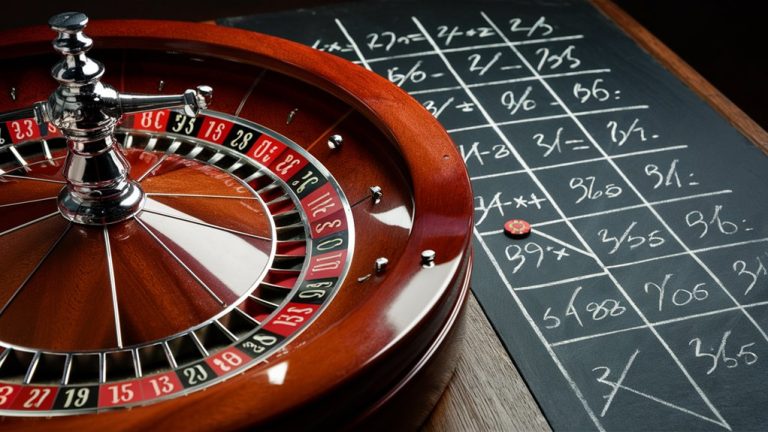
Inside Poker: Mastering the Professional Game

Core Elements of Elite Poker Success
Professional poker mastery needs work in five key areas that put top players above the regular ones. To climb to elite ranks, players have to grow:
1. Professional Mindset and Decision-Making
Top players use a data-driven system mixed with great emotional calm. This way of thinking helps make even choices without tilt and mind tricks.
2. Advanced Game Theory Application
GTO (Game Theory Optimal) play and smart range building are the math behind modern poker greatness. Knowing these helps players make choices that can’t be beaten in many settings.
3. Strategic Bankroll Management
Elite players follow set bankroll rules and have right buy-in levels. This careful plan keeps games going strong over many game kinds and tourney setups.
4. Superior Player Reading Skills
Knowing both body signs and betting pattern study gives top players needed info edges. This mix of live hints and data study makes big chances to win.
5. Tournament-Specific Excellence
Sharp players shine in ICM (Independent Chip Model) steps and bubble tactics. Knowing these event-focused ideas is key for max profit in big games.
Adding these core parts, with ongoing checking and plan tweaks, sets up a base for long poker wins at top levels.
The Professional Mindset
The Professional Mindset: Mastering High-Stakes Play
Developing Elite-Level Choices
A professional mindset turns normal players into big leaders through planned quality.
Win comes from staying super focused and seeing every move as a key business choice.
True pros face each test with clear goals, strong plan handling, and set emotion control.
Strategic Analysis and Lifting Performance
Data-driven choices mark the line between elite players and fun lovers.
The aim is to make smart math moves all the time while checking real factors and noticing behavior forms.
Performance checks, detailed study, and constant shift based on hard facts push firm win.
Mastering Professional Perfection
Total push to get better shows the professional mindset.
This means checking new techniques, doing full performance checks, and making strong work ties.
Top players turn losses into learning chances and see wins as proof of right method use.
Look at good plan bets, stay firm, and stick to long plans over small ups and downs.
Key Win Factors
- Planned way to make choices
- Emotion smarts and calm
- Constant learning and change
- Strategic ties with top names
- Data-driven check of moves
- Plan managing at its best
Strategic Game Theory Main Points
Strategic Game Theory Main Points in Poker
Known GTO Moves
Game theory best (GTO) moves are the main part of smart poker plans, making math-based choice paths that max expected value (EV). 이 내용을 꼭 확인해보세요
Today’s poker win needs mastering these main ideas to build a play style no one can beat.
Range Weight and Perfecting
Range making is a big piece of smart poker play.
Best plans need well-set betting ranges mixing both good hands and tricks.
When making river bets, players must keep exact bet-to-trick ratios that stop foes from winning through too much calling or folding. Freedoms With Serene Lucky Emergence
Spot and Math
Spot upper hand and pot chances checks lead smart choices at top levels.
Sharp players use min defense rates (MDF) to find the best continue ranges against fights.
Against a pot-sized bet, defending with at least 33% of hands stops getting used. This math rule helps make even ranges over different board looks and stack sizes.
Using Other Plans
While GTO rules give a base plan, top players see chances to change for more gain.
Board looks and opponent moves inform plan changes away from just theory play.
Knowing both unbeatable rules and shift plans creates a full plan setup for winning poker always.
Bankroll Handling
Bankroll Handling for Professional Poker Players

Known Bankroll Points
Professional poker players know that right bankroll handling is the base of long win and lasting play.
Good managing keeps you safe from broke and lets players move through the expected ups and downs of poker.
Asked Bankroll Needs
Cash Game Tips
Keep 20-30 buy-ins for cash games at your play level. For $1/$2 No-Limit Hold’em with $200 buy-ins, make a pure poker bankroll of $4,000-$6,000.
Tourney Needs
Tourney players need 50-100 buy-ins because of high up and down levels. This big safety net looks at the wild style of tourney poker and long times between big wins.
Strategic Bankroll Safety
Go down in stakes during low runs to keep your money safe. Move to bigger stakes only after making enough at your current level.
Many good players go broke by not following these key bankroll rules and trying levels too big for their money.
Performance Checks
Close session checks are needed for bankroll wins:
- Write all buy-ins
- Write cash-out sums
- Check time played
- Study how you do
This full data helps pick stake levels well and finds possible game plan leaks.
Without tight bankroll setups, even top players risk their poker lives through poor money watching.
Reading Players and Moves
Knowing Player Hints and Move Forms in Poker
Body Hints and Live Play
Watching players and spotting patterns mark top players from normal ones in poker.
Body hints like hand moves, how you breathe, and how you sit can show hand power or tricks. These signs give needed info for top choices at the table.
Smart Move Study
Betting moves show key mind hints and habits to use.
Smart players watch how foes react to different board looks, check place-based bet sizes, and watch follow betting rates.
Seeing habits like too much value betting with okay hands or too much folding to three-bets makes chances to use. Putting players into types – tight-aggressive (TAG), loose-passive, or very aggressive – lets you shift plans for most gain.
Online Poker Checks
Online poker worlds need smart check plans. Track tools give deep data study of foes’ moves and math forms.
Main signs include betting move changes, time hints, and fight rate changes. This data-driven way turns close calls into money chances through smart foe use and plan changes.
Knowing Tourney Play
Knowing Tourney Poker Plans
Getting Tourney Moves
Tourney poker needs a very different way than cash games because of its own setup.
Chip handling becomes key as blinds go up through play.
Your plans must shift based on if you’re the chip leader or with a low stack.
Key Tourney Parts
Early Part
Use tight-aggressive play in the early levels while learning how foes play.
Keeping chips is most important as you make a base for deep runs.
Focus on top hands and good spots over iffy ones.
Middle Part
As blind pressure grows, move to more bold plans to keep your stack healthy.
Look for chance to get chips through smart steals and re-steals.
Place plays get more worth as tourney moves change.
Late Part
ICM thought leads choices near the bubble and last table.
Keeping your stack often beats getting chips fast.
Know push-fold plans when under 10 big blinds.
Late spot gets key as smaller stacks play tighter near money jumps.
High Tourney Ideas
Spot bonus gets more key in tourney styles.
Know well how to play with a small stack and when to switch between safe and bold plans.
The end style of tourneys – where lost chips can’t come back – asks for top money handling and smart timing for best finish.
Needed Skills for Win
- Chip-to-blind ratio knowing
- ICM-based choices
- Push-fold balance
- Bubble play shifts
- Last table moves



